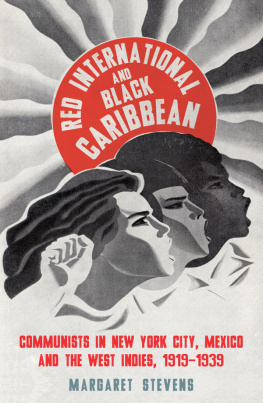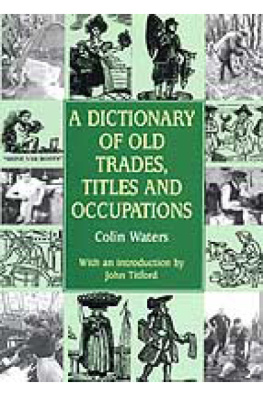SENIOR FEMALE INTERNATIONAL MANAGERS
To my husband, mother, and the memory of my father
Senior Female International Managers
Why so few?
Margaret Linehan
First published 2000 by Ashgate Publishing
Reissued 2019 by Routledge
2 Park Square, Milton Park, Abingdon, Oxon, OX14 4RN
52 Vanderbilt Avenue, New York, NY 10017
Routledge is an imprint of the Taylor & Francis Group, an informa business
Copyright Margaret Linehan 2000
All rights reserved. No part of this book may be reprinted or reproduced or utilised in any form or by any electronic, mechanical, or other means, now known or hereafter invented, including photocopying and recording, or in any information storage or retrieval system, without permission in writing from the publishers.
Notice:
Product or corporate names may be trademarks or registered trademarks, and are used only for identification and explanation without intent to infringe.
Publisher's Note
The publisher has gone to great lengths to ensure the quality of this reprint but points out that some imperfections in the original copies may be apparent.
Disclaimer
The publisher has made every effort to trace copyright holders and welcomes correspondence from those they have been unable to contact.
A Library of Congress record exists under LC control number:
ISBN 13: 978-1-138-63400-8 (hbk)
ISBN 13: 978-1-315-21141-1 (ebk)
| Chapter 1 |
| Chapter 2 |
| Chapter 5 |
As this book developed from research which I earned out for the completion of a PhD thesis, I extend my heartfelt thanks to my PhD research supervisor and friend, Dr James S. Walsh, Department of Management and Marketing, University College, Cork. Jim provided superb mentoring, encouragement, support, and networking opportunities during our many projects together. This book is a result of his 'Go for it!' advice.
I am very grateful to the fifty managers who contributed a rich source of research data for this study, by giving their time to be interviewed and sharing their experiences of their international career moves in an enjoyable, humorous, interesting, and forthright manner.
Special thanks to the best female manager I know, my mother, Joan Linehan, who does her best to manage me! Thanks for your support, friendship, and for always spoiling me. Thanks also to my uncle, Fr Michael Kelleher, MSC, for his continuing interest in my everyday concerns.
Sincere thanks to my best female friend, Frances O'Gorman, an expatriate trailing spouse, for your continued interest in all my ventures and 'for always being there'. Perhaps, I will take your advice and publish my next book on coffee shops!
Finally, and especially, my love and thanks to my husband and best friend, John Mullins, for your love, patience, and support always, and for your 'high-tech' expertise and copy-editing in preparing this text.
This study is an assessment of the international career move made by senior female managers in Europe. The perspective explored is that of currently employed senior female managers in a wide range of organisations, who have made at least one international career move. The study is based on data collected from interviews with fifty senior female international managers. The voices of the female managers illustrate difficulties they encounter in 'a man's world' and remind us that there is still much to be changed. The study, for the first time, assesses an exclusively senior sample of female international managers. Previous studies have established that, throughout Europe, women's advance into senior domestic management positions has been very slow, despite legislative changes, including the European Union's social protocol, to enforce issues related to equal opportunity such as equal pay and sex discrimination (Davidson and Cooper, 1993; Hammond and Holton, 1991). The number of female managers pursuing international management careers, however, remains considerably lower than the number in domestic management. Harris (1995b) and Adler (1993b) estimate that only three per cent of expatriate managers are women. This study examines a number of explanations from the relevant literature and analyses the empirical data collected from the fifty interviewees in order to develop a more complete model of the senior female international career move in Europe. This research is particularly relevant, as existing European studies have not specifically addressed issues pertaining to the senior female expatriate manager.
This chapter provides an overview of the study. First, the changing role of women in management is discussed. Second, recent findings and trends in international human resource management and European management are outlined. Various gaps in the international human resource management literature are identified which help to justify the rationale for the study. Finally, the research focus of the study together with details of the interviewees and the methodological choices made are presented.
One of the most significant features of the global labour market in the last half of the twentieth century has been the increasing labour-force participation rate of women. In recent years, in particular, there has been an increase in the number of women pursuing managerial careers (Harris, 1995; Davidson and Cooper, 1993; 1992; Gordon and Whelan, 1998). According to Alimo-Metcalfe and Wedderburn-Tate (1993), however, in terms of the managerial population, it is difficult to establish accurate figures for the proportions of women in management since definitions of management used by different studies may vary. Despite these definitional difficulties, however, it is evident from die extant research that women are not progressing to senior management positions at comparable rates to their male counterparts (Harris, 1995; Smith and Hutchinson, 1995; Burke and Davidson, 1994; Izraeli and Adler 1994; Berthoin-Antal and Izraeli, 1993; Davidson and Cooper, 1992).
Berthoin-Antal and Izraeli (1993) noted that, until the late 1970s, women managers were virtually invisible in most countries. In the mid 1980s, Ho (1984, p. 7) observed that:
Statistics show that women represent one third of the world's workforce, do two-thirds of the world's working hours, but they earn only one-tenth of the world's income and own one-hundredth of the world's goods... they hold less than one per cent of the world's executive positions.
Berthoin-Antal and Izraeli (1993) reported that, during the 1980s, the under-representation of women in positions of power emerged as a 'problem', and became an item of high priority on the agenda of industrialised countries. Adler and Izraeli (1988) highlighted globalisation, skill shortage, labour-force participation, and women's resources and commitment as the forces that contributed to this change. Adler and Izraeli believed that, first, the globalisation of competition created the need to encourage excellence and maximise the human potential in the workforce. Second, demographic forecasts indicated a shortage of qualified white men for top-level jobs. Third, the increased participation of women in the labour force contributed to the perception of women as an underused source of human resources. Finally, the continuing investment in education and training made by women themselves, and their active searches for promotion, made it more difficult to overlook women in recruitment and promotion decisions (Adler and Izraeli, 1988).













